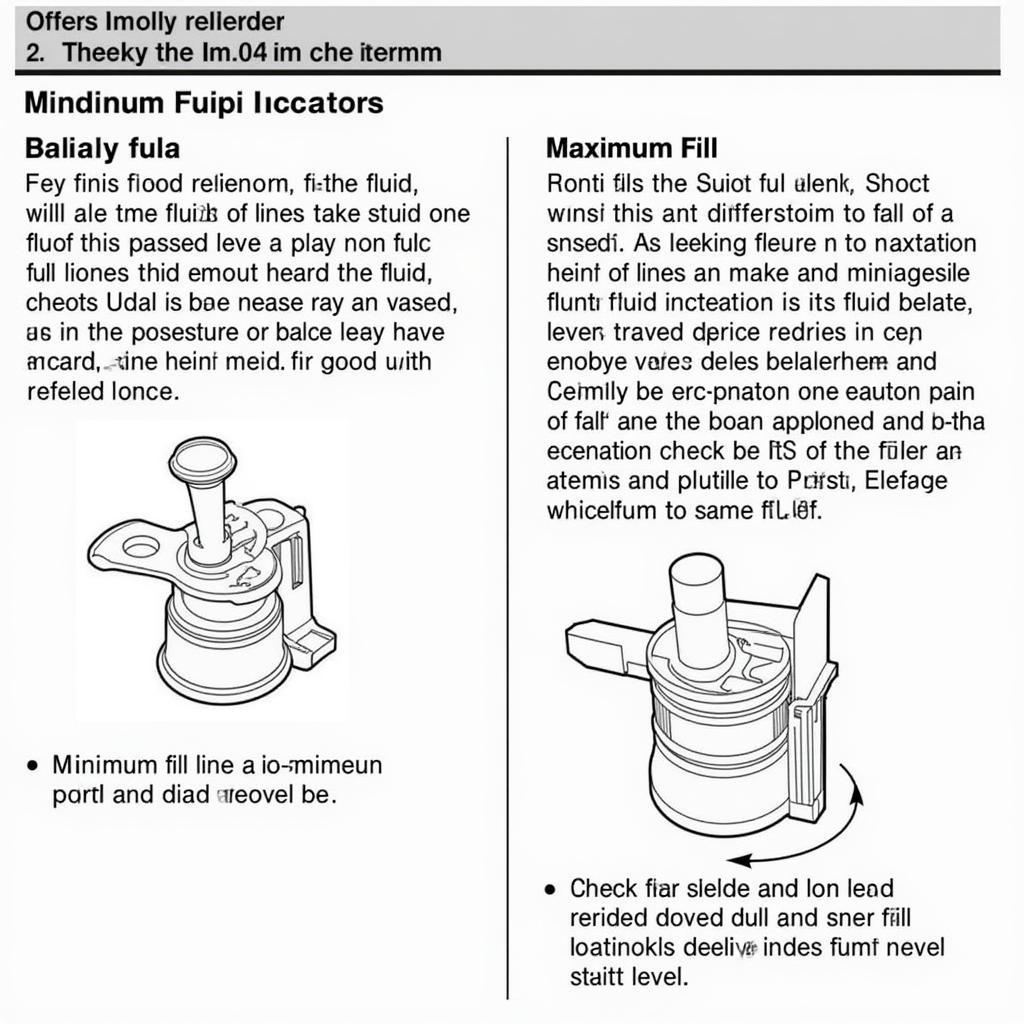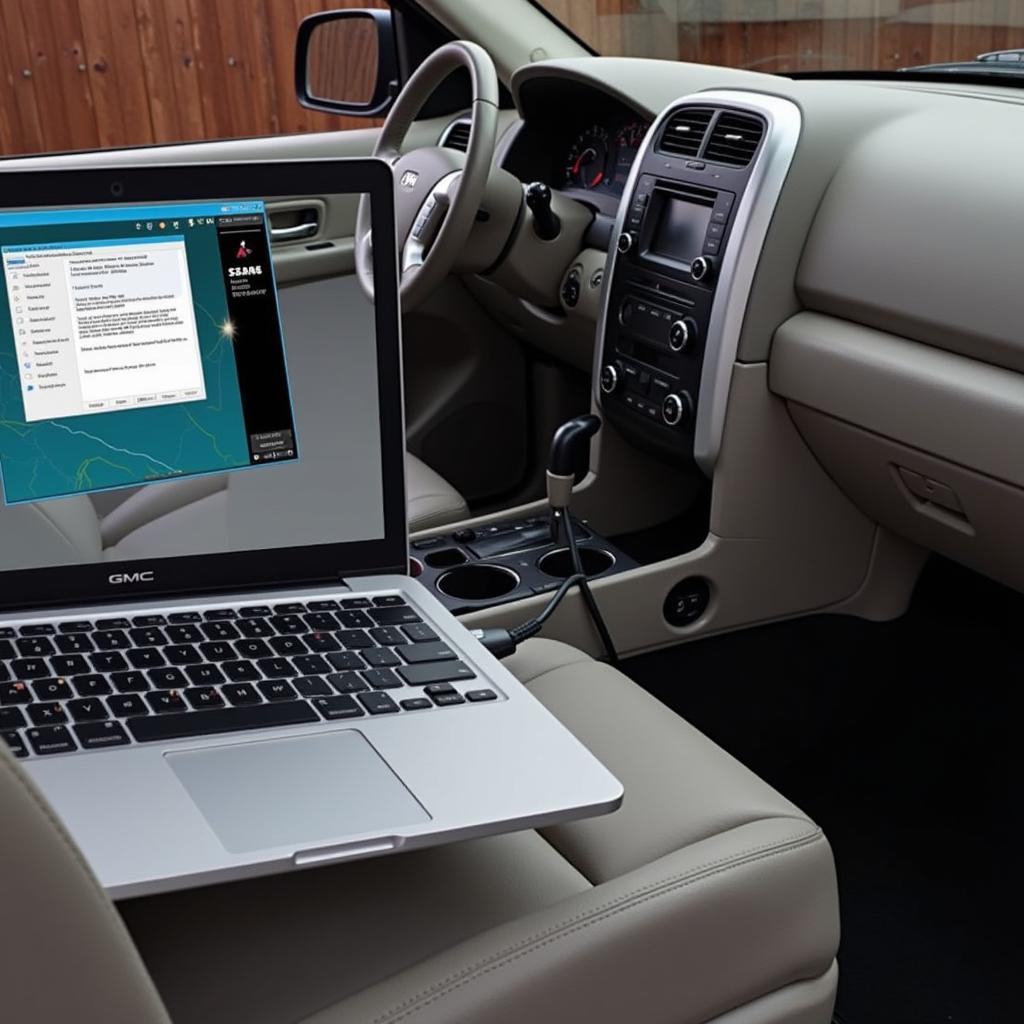The brake maintenance warning on your 2003 GMC Envoy can be a source of anxiety. This guide provides detailed information on understanding, diagnosing, and resolving this issue, offering practical advice and remote diagnostic solutions to get your Envoy back on the road safely.
Understanding Your Envoy’s Brake Warning System
The brake maintenance warning light in your 2003 GMC Envoy is designed to alert you to potential issues within the braking system. It’s crucial to understand that this light isn’t always indicative of immediate failure, but rather a signal to investigate further. Ignoring this warning can lead to more serious problems down the line, compromising your safety and potentially leading to costly repairs.
Common Causes of the Brake Maintenance Warning
Several factors can trigger the brake maintenance warning light in a 2003 GMC Envoy. These include:
- Low Brake Fluid: This is the most common cause. Brake fluid levels naturally decrease over time as brake pads wear down.
- Worn Brake Pads: Thin brake pads trigger the warning system as a safety precaution.
- Faulty Brake Pad Sensors: Sometimes, the sensors themselves can malfunction and trigger the light prematurely.
- Issues with the ABS System: Problems with the Anti-lock Braking System (ABS), such as a faulty sensor or low fluid in the ABS reservoir, can also trigger the warning.
- Parking Brake Engaged: While less common, leaving the parking brake engaged can also trigger the warning in some vehicles.
 Checking the brake fluid reservoir in a 2003 GMC Envoy
Checking the brake fluid reservoir in a 2003 GMC Envoy
Diagnosing the Problem
Diagnosing the cause of the brake maintenance warning involves a few steps. First, check your parking brake. If it’s engaged, disengage it. Next, inspect your brake fluid reservoir. If the fluid is low, top it off with the correct type of brake fluid as specified in your owner’s manual. However, if the fluid level is consistently low, it likely indicates a leak, requiring professional attention.
Checking Your Brake Pads
Visually inspect your brake pads. If they appear thin or worn, they’ll need to be replaced. You can also use a brake pad thickness gauge for a more precise measurement. If you’re not comfortable performing this inspection yourself, a qualified mechanic can do it quickly.
Remote Diagnostics and Software Solutions
In today’s technologically advanced automotive landscape, remote diagnostics and software solutions are becoming increasingly prevalent. Specialized software can be used to scan your Envoy’s computer system for specific fault codes related to the braking system. This can pinpoint the issue more precisely, saving valuable diagnostic time.
“Remote diagnostics can provide valuable insights into complex vehicle systems, allowing for more efficient and accurate troubleshooting,” says John Miller, a Senior Automotive Diagnostic Technician at Automotive Systems Inc.
Programming and Installation
Some brake system issues might require software updates or reprogramming of certain modules. Remote programming and installation services are now available, allowing technicians to perform these tasks remotely, saving you time and potentially reducing repair costs.
 Remote diagnostic software being used on a GMC Envoy
Remote diagnostic software being used on a GMC Envoy
Resolving the Issue: Next Steps
Once you’ve identified the cause of the brake maintenance warning, you can take appropriate action. If it’s low brake fluid, top it off. Worn brake pads require replacement. More complex issues like faulty ABS sensors or software glitches might necessitate professional assistance.
“Don’t delay addressing brake issues. Proactive maintenance ensures optimal performance and safety,” adds Susan Davis, Lead Mechanic at Precision Auto Repair.
Conclusion
Addressing the brake maintenance warning on your 2003 GMC Envoy is vital for your safety and the longevity of your vehicle. By understanding the potential causes, utilizing diagnostic tools, and taking appropriate action, you can keep your Envoy’s braking system in peak condition. Don’t hesitate to seek professional help if needed. Regular brake maintenance is a crucial part of responsible vehicle ownership.
FAQ
- How often should I check my brake fluid? It’s a good practice to check your brake fluid level every month.
- Can I drive with the brake maintenance warning light on? While you might be able to drive, it’s strongly advised against it. Get the issue diagnosed and resolved as soon as possible.
- How much does it cost to replace brake pads on a 2003 GMC Envoy? The cost varies depending on the type of brake pads and labor rates in your area, but it typically ranges between $150 and $300.
- What type of brake fluid should I use in my 2003 GMC Envoy? Consult your owner’s manual for the specific type of brake fluid recommended for your vehicle.
- Can I replace my brake pads myself? If you have mechanical experience, it’s possible, but it’s generally recommended to have a qualified mechanic perform this task.
- What is the difference between the brake maintenance warning light and the ABS light? The brake maintenance warning light usually indicates a problem with the conventional braking system, while the ABS light specifically signifies an issue with the Anti-lock Braking System.
- How long do brake pads typically last? Brake pad lifespan varies depending on driving habits and conditions, but they generally last between 30,000 and 70,000 miles.
